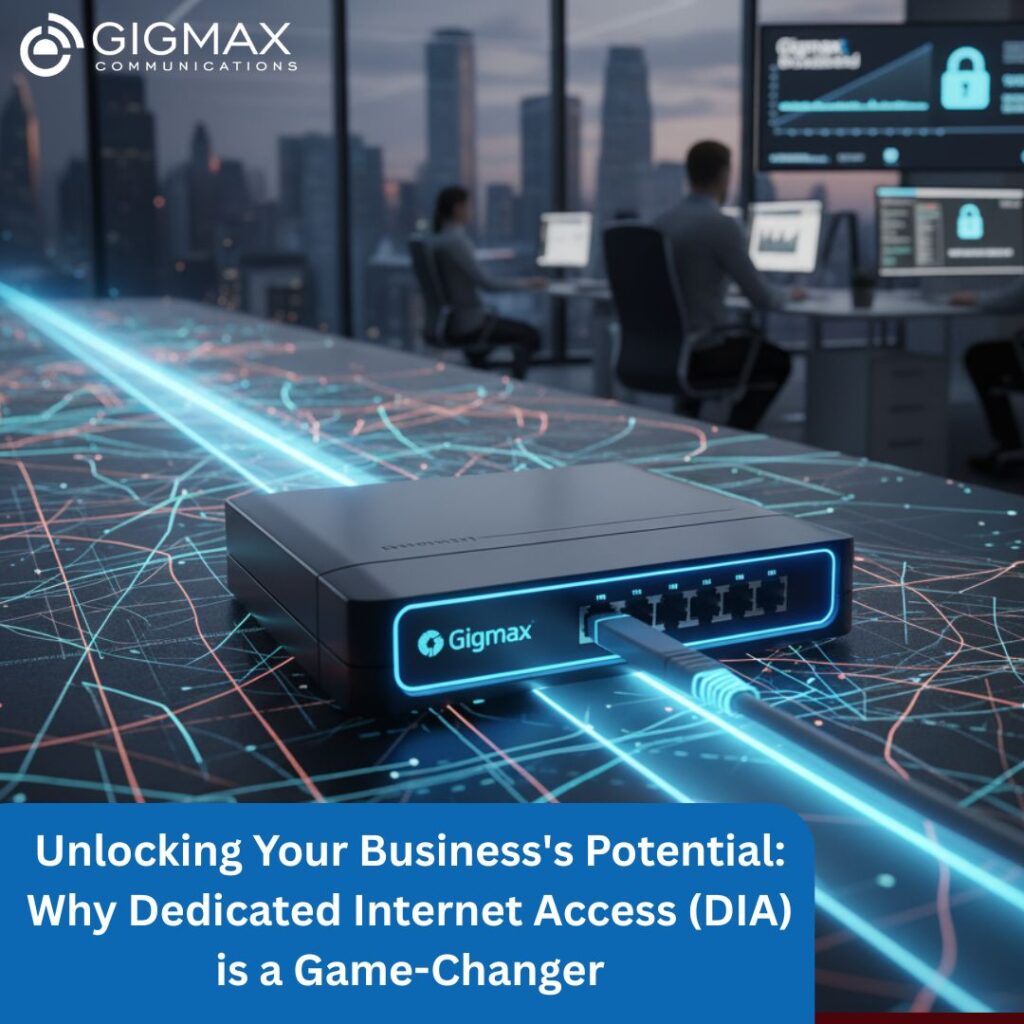
In today’s hyper-connected world, a reliable internet connection isn’t a luxury—it’s the backbone of your business operations. From video conferences and cloud-based applications to high-volume data transfers, everything depends on a steady, fast, and secure connection. But not all internet is created equal. While residential and small-business broadband services may suffice for basic needs, a growing number of companies are realizing the transformative power of Dedicated Internet Access, or DIA.
Often referred to as a DIA connection, direct internet access, or even a leased line, this service is fundamentally different from the shared broadband most of us are familiar with. Think of shared internet as a public highway: at peak times, everyone is competing for the same lanes, leading to congestion, slowdowns, and unpredictable performance. DIA, on the other hand, is your own private express lane, delivering a direct and exclusive circuit from your business to your internet service provider (ISP). You don’t share bandwidth with other businesses or residential users in your area, guaranteeing consistent speeds and performance around the clock.
The Core Pillars of a DIA Connection
The benefits of a DIA connection go far beyond just speed. They are built on a foundation of three key pillars:
- Guaranteed Performance and Symmetrical Speeds: With shared internet, advertised speeds are “up to” a certain rate, and your upload speed is typically a fraction of your download speed. This asynchronous model can be a major bottleneck for businesses that frequently upload large files, use cloud services, or rely on video conferencing. A DIA connection provides symmetrical speeds, meaning your upload and download speeds are identical and, most importantly, guaranteed by a Service Level Agreement (SLA). This SLA is a contract that outlines a provider’s commitment to uptime, latency, and other performance metrics, ensuring you get the service you pay for.
- Unmatched Reliability and Uptime: Downtime can be devastating for a business, leading to lost productivity, missed deadlines, and damaged reputation. DIA is engineered for maximum reliability. By providing a private connection that bypasses public infrastructure, DIA minimizes the risk of outages and performance degradation caused by network congestion. Providers often offer a 99.9% uptime guarantee or higher, backed by the SLA. In the event of an issue, DIA customers receive priority support with guaranteed response and repair times, giving you the peace of mind that your business will stay online.
- Enhanced Security: The private nature of a DIA connection inherently offers a higher level of security. Your data travels on a dedicated internet access circuit, reducing the exposure to the public network and the risks that come with it. Many providers also offer additional security features like managed firewalls and DDoS protection as part of their DIA service, further safeguarding your sensitive business data from cyber threats.
Demystifying Dedicated Internet Access Pricing
While the benefits are clear, dedicated internet access pricing is a common point of concern for businesses. It’s true that DIA is a premium service and costs more than shared broadband. However, the price is determined by several factors, making it a tailored solution rather than a one-size-fits-all product. Key factors influencing the cost include:
- Bandwidth and Speed: This is the most significant factor. As you might expect, a 1 Gbps connection will cost more than a 100 Mbps one. The price increases with higher bandwidth needs, but it’s important to select a speed that aligns with your business’s current and future demands.
- Geographic Location: Pricing can vary significantly based on your location. Urban areas with a high density of existing fiber infrastructure (often called “on-net” buildings) will have more competitive pricing. Locations that require new fiber construction (“off-net” sites) will incur higher installation costs.
- Contract Length: Providers often offer substantial discounts for longer-term contracts, typically 24 or 36 months, which can help amortize the initial setup costs and lead to a lower monthly recurring fee.
- Included Services: The final price may include additional services such as a managed router, static IP addresses, or enhanced support options. Be sure to understand what’s bundled into your plan.
For small businesses, a DIA connection might cost between $500 and $1,000 per month for a 100 Mbps line. Enterprise-level needs, such as a 1 Gbps connection, can range from $1,000 to $1,500 per month or more, depending on the factors listed above. It’s a significant investment, but when you consider the cost of downtime, lost productivity, and potential security breaches, the value proposition of DIA becomes undeniable.
Is DIA Right for Your Business?
Dedicated internet access is not a solution for every business, but it is an essential tool for those that rely on robust, consistent, and secure connectivity. If your business uses mission-critical applications, operates a call center (VoIP), hosts web servers, performs large-scale data transfers, or has a large number of employees on a single network, DIA is likely a wise investment. It’s an investment in your company’s productivity, security, and ability to grow without being limited by a sluggish and unreliable internet connection. When you’re ready to upgrade your business’s potential, choosing a provider that offers both robust shared services and direct internet access is key. A service provider like Gigmax Broadband understands these needs, offering a range of plans from high-speed fiber broadband for general use to high-performance leased lines for businesses that require unwavering reliability.



Leave a Reply